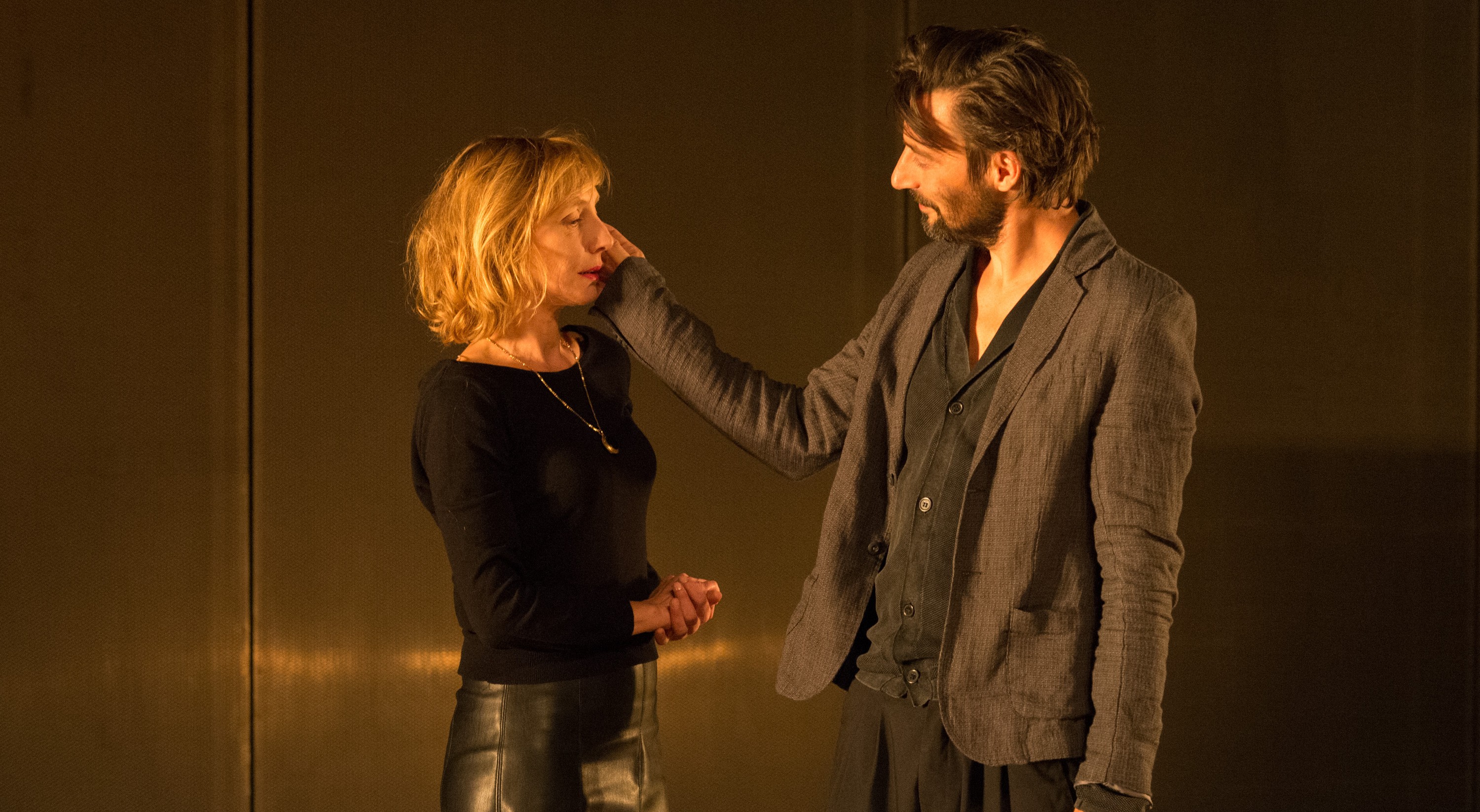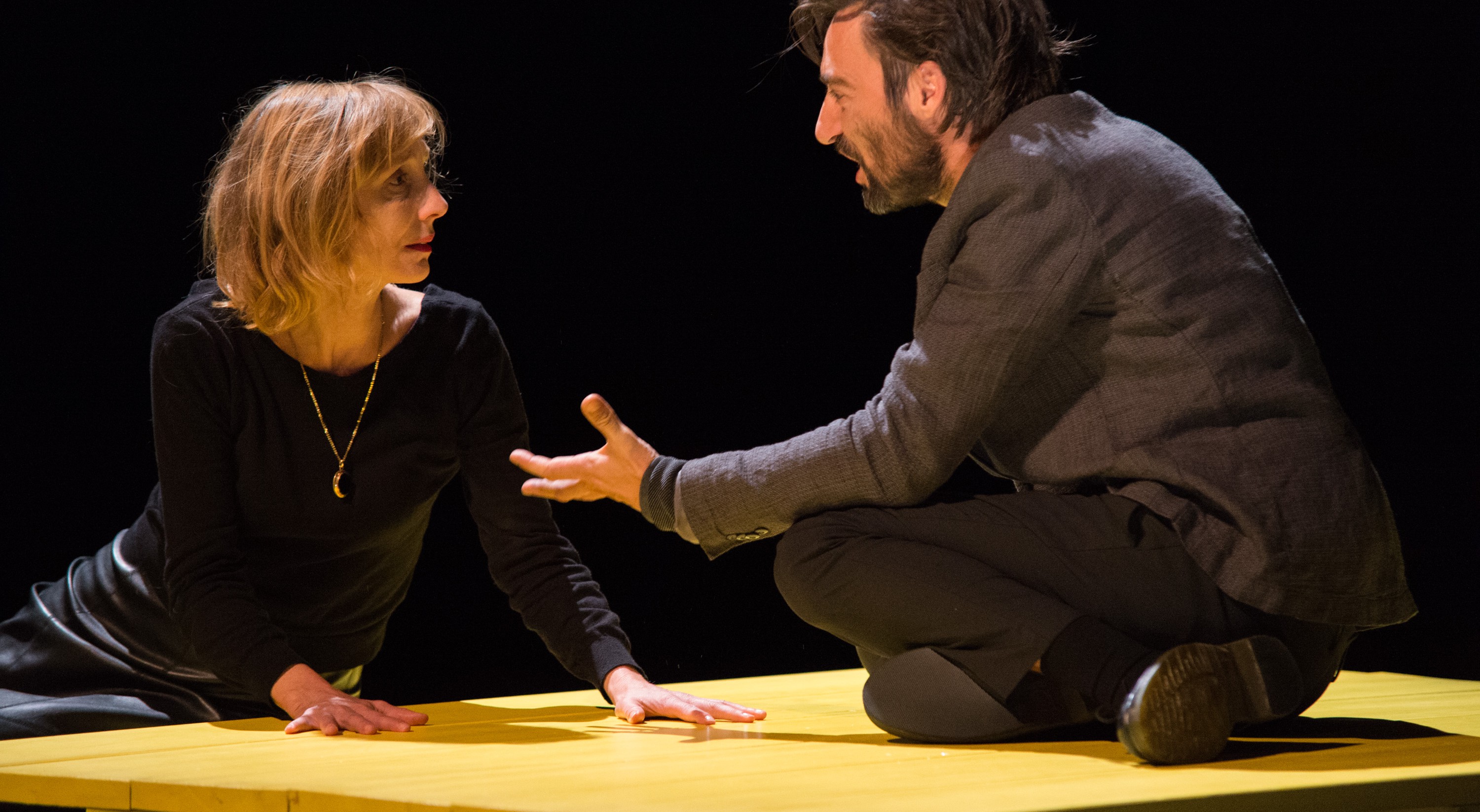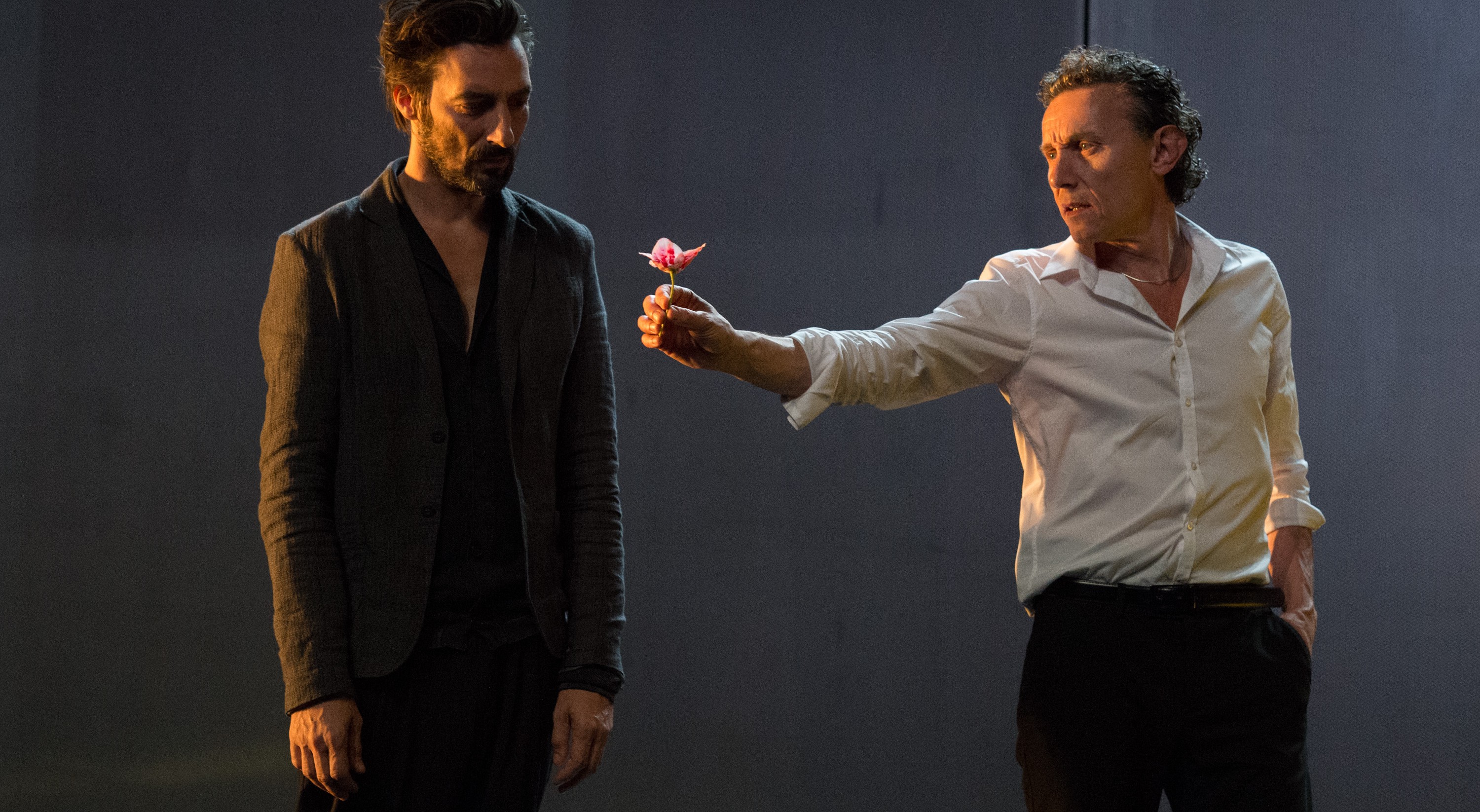Jonathan Châtel
Andreas
D’après la première partie du Chemin de Damas d’August Strindberg
septembersept 25 - october – oct 25
Directed, adapted and translated by, Jonathan Châtel
With Pauline Acquart, Pierre Baux, Thierry Raynaud, Nathalie Richard
Artistic Collaboration, Sandrine Le Pors
Stage design, Gaspard Pinta
Lighting, Marie-Christine Soma
Costume design, Fanny Brouste
Music, Étienne Bonhomme
Assistant director, Enzo Giacomazzi
A Compagnie ELK coproduction ; La Commune centre dramatique national d’Aubervilliers ; Tandem Douai-Arras – Scène nationale ; Festival d’Avignon ; Théâtre Olympia – Centre Dramatique Régional de Tours ; Festival d’Automne à Paris ; Le Phénix – Scène nationale de Valenciennes // In partnership with La Commune centre dramatique national d’Aubervilliers ; Festival d’Automne à Paris // With production support from DRAC Nord-Pas-de-Calais/Ministère de la Culture et de la Communication, de la Région Nord-Pas-de-Calais // With support from Studio Théâtre de Vitry, du Théâtre du Nord – Centre dramatique national de Lille-Tourcoing // Jonathan Châtel is Associate Artist at La Commune centre dramatique national d’Aubervilliers and at Tandem Douai-Arras – Scène nationale // With support from Adami
First performance on 4 July 2015 at the Festival d’Avignon
With Petit Eyof, his first production, Jonathan Châtel made a big - and well placed - impact. At once dark and dazzling, minimalist and powerfully contemporary, his reading of Ibsen’s masterpiece earned the young Franco-Norwegian director the Prix du Public at the Festival Impatiences in 2013. With Andreas, he now turns his attentions to that other eminence grise of Scandinavian theatre: August Strindberg. A towering range that he ascends by what is undoubtedly its steepest summit: To Damascus, a monumental triptych written between 1898 and 1904 by a writer in deep personal crisis, relates perhaps, in accordance with the biblical episode of the same name, the story of a conversion. From out of this labyrinthine piece racked with paranoia, Jonathan Châtel has decided to retain the first part only, “because it carries within it the purity of the movement of writing. This is impulse at its most complete and naïve level”. He has decided to give a first name to the character of the Stranger, the play’s “hero”, in order to bring out the traits of this “self-portrait and self-criticism of a man in free fall”. Around Thierry Raynaud will be gathering a Russian-doll like assembly of actors and actresses in order to give flesh and body to this “throng of doubles and half-doubles, twins and half-twins” (Arthur Adamov). The disconsolate writer collides with this gallery of masks and mirrors at every turn, as though he were, perhaps, our own double.
In the same place



